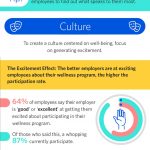Common Workplace Mistakes New Grads Don’t Realize They’re Making
Just as you were getting used to the rules and politics of university life, you’re back to square one with a new challenge: your first job. While the skills and knowledge you’ve gained in college will certainly be an important part of your toolkit for doing well in your new job, there’s also a new rulebook you need to get acquainted with. Prepare for your first job by avoiding these nine mistakes that you may be liable to inadvertently make.
1. Not Understanding The Implications Of Your Mistakes
Before, when you messed up or didn’t put the work in, only you bore the consequences–through a bad grade or a failed class. Now, your mistakes have wider implications than just grades–other people are depending on you to do a job that will have real effects and results in the world. You need to take responsibility for your mistakes, because now their implications affect more people than just you.
2. Not Networking Enough
Networking can be intimidating, especially for a generation accustomed to socializing through screens. But a simple coffee chat with someone in your company may have more beneficial consequences down the road than you would expect. It’s also important to learn how to network smarter. “I always believe networking is not about only meeting new people, but making the most of your existing relationships. Ask them the question “Who do you know who . . . ?” and start to leverage their networks so you move out exponentially,” says Andy Lopata, author of Recommended: How to Sell Through Networking and Referrals.
3. Underestimating The Importance Of Finding A Mentor
“If I hadn’t had mentors, I wouldn’t be here today. I’m a product of great mentoring, great coaching . . . Coaches or mentors are very important. They could be anyone–your husband, other family members, or your boss,” Indra Nooyi, the CEO of PepsiCo, has said. Mentors can leverage you through your career when you most need it. While mentorship isn’t something that’s talked about a lot when you’re entering the workforce, it’s critical to start thinking about finding mentors from day one.
4. Leaving Work Until The Last Minute
It might have been okay in college to pull all-nighters before a big deadline. But pulling an all-nighter and then going to work the next day is unsustainable, especially if you’re expected to be fully functioning at work. It’s now your responsibility to your job–and even more importantly, your colleagues–to bring an awake mind to your job.
5. Treating Your Boss Like Your Professor
While your professor may have been gracious in granting you extensions for your paper you handed in a week late, your boss might not be so understanding–especially if you tell them at the last minute that you’re going to need more time for something. In addition, while your professor’s primary goal was to help you learn, your boss’s primary goal is to help you work. Keep that in mind as you navigate this new power dynamic.
Just because a big meeting isn’t a final exam doesn’t mean you shouldn’t study for it like you would for a test. And just because you’re not being evaluated with a grade every time you turn in an assignment or complete a project doesn’t mean you should take it any less seriously. Especially as a newbie on the job, this is your time to show up with your research already done and your slides already made, so that you can prove yourself to others and avoid wasting their time.
7. Not Going The Extra Mile
As a new member of the workforce, this is your first chance to prove yourself in the professional world. Marissa Mayer, the former CEO of Yahoo, has said of starting out in her career, “I always did something I was a little not ready to do. I think that’s how you grow. When there’s that moment of ‘Wow, I’m not really sure I can do this,’ and you push through those moments, that’s when you have a breakthrough.” Failing to find that edge can stall your future development.
8. Avoiding Feedback
In college, feedback was almost always associated with an event that many consider stressful: finding out your grade. But in work life, there is no report card. The feedback you get only serves to correct your mistakes and propel you forward. Feedback should be solicited rather than shirked.
9. Using Social Media In The Office
Unless your job title contains the words “social media strategist,” chances are your boss (and colleagues, for that matter), won’t be very happy to look over and see you browsing on Facebook. The same goes for scrolling through your smartphone. Your office does not afford the anonymity of a large lecture hall.
This article originally appeared on Glassdoor and is adapted and reprinted with permission.
How to avoid these rookie blunders starting on day one of your new job.
Just as you were getting used to the rules and politics of university life, you’re back to square one with a new challenge: your first job. While the skills and knowledge you’ve gained in college will certainly be an important part of your toolkit for doing well in your new job, there’s also a new rulebook you need to get acquainted with. Prepare for your first job by avoiding these nine mistakes that you may be liable to inadvertently make.
Fast Company , Read Full Story
(30)














